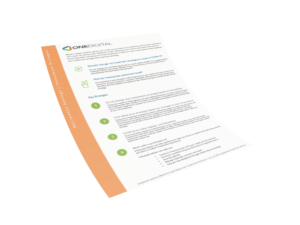Better Benefits
Retirement Ready: Should you change your portfolio based on recent market volatility?
Retirement Ready: Should you change your portfolio based on recent market volatility?
The headlines continue to remind us that the market volatility between mid-February and the end of March was substantial.
The equity markets fell by 35% in only 23 trading days, which is a record, only to recover by nearly the same percentage in the following 25 days. However, even though markets recovered almost the same proportion as they fell, that does not even out the indices.
This volatility leaves many investors wondering…
Should I change my portfolio based on recent market volatility?
In general, my advice is that you should not change your portfolio based only on recent market volatility. Your strategy should be reviewed if there were recent changes in your circumstances or if your portfolio was not appropriately allocated before the pandemic.
How do I recoup lost retirement funds?
We should expect that the stock market will continue to be volatile for the foreseeable future. I would encourage you to focus on the things that you can control, such as how much you are saving out of every paycheck. Long-term strategies that are not impacted by fear will continue to create value for savers over time and the benefits of buying into the market during low periods will assist with that strategy.
Here is some additional advice for you to consider with regard to your retirement savings and your ability to meet your long-term financial goals.
- Do not change your investment strategy based on the headlines
Investors often struggle to separate their emotions from their investment decisions, and in times like these, the headlines drive many emotions. Timing the market is challenging to do and making decisions out of fear instead of based on the fundamentals often results in investors making the wrong decision at the exact wrong time.
Investing for the long-term while managing volatility has historically led to better performance outcomes1. A better longer-term decision is to set your financial goals and build a portfolio based on your circumstances not short-term headlines or changes in the stock market.
- Only adjust your strategy based on changes in your circumstances
Everyone’s investment strategy should be different based on their financial situation and time horizon until retirement. If your investment strategy was aligned with your circumstances and goals before the pandemic, it is still right for you.
Saving for retirement is a long-term strategy, and your level of risk should be adjusted over time to align with your time until retirement. Those participating in a retirement plan often invest in a target-date fund that automatically adjusts their level of risk based on their age.
If you are not sure what you are currently invested in, it would be appropriate to make sure that you are in a diversified fund with an allocation that aligns with your time until retirement and other financial considerations in your life. It would be appropriate to chat with a financial advisor to review your strategy before making any changes.
- Continue to make regular contributions
Your savings rate over time will have a more significant impact on your ability to meet your retirement goals than any single investment decision ever will. The only people who have been penalized by the recent volatility are those who did not have their portfolio constructed appropriately prior to mid-February and those that made poor investment decisions based on fear.
The vast majority of retirement plan participants have not made any changes to their current investment structure in the last couple of months. If you have been regularly contributing to your retirement plan, you have been buying investments while they were essentially on sale. Please stay focused on how much you are saving and continue making regular contributions; these actions alone can lead to better retirement outcomes.
- Work with a professional
A financial advisor can offer guidance to help you focus on actions that add value, and this can lead to a better investment experience.
A financial advisor can help you:
- Create an investment plan to fit your needs and risk tolerance
- Structure a portfolio along the dimensions of expected returns
- Diversify globally
- Manage expenses, turnover, and taxes
- Help you stay disciplined through market dips and swings
As economies start to reopen if the spread of COVID-19 re-accelerates, it could create additional market volatility, and I expect that economic data released over the next few months will be weak. Please remember that investment decisions should not be made out of fear, and those investors who stay committed to a diversified and appropriately allocated portfolio will weather the storm.
Click here for a flyer to use with your employees

For more information on the important steps you should take during this uncertain time, visit our OneDigital Coronavirus Advisory Hub, or reach out to your local OneDigital advisory team.
Investment Advice offered through Resources Investment Advisors LLC, (d/b/a OneDigital Investment Advisors) an SEC-registered investment adviser and wholly owned subsidiary of OneDigital.
1 Past performance is not a guarantee of future results.




